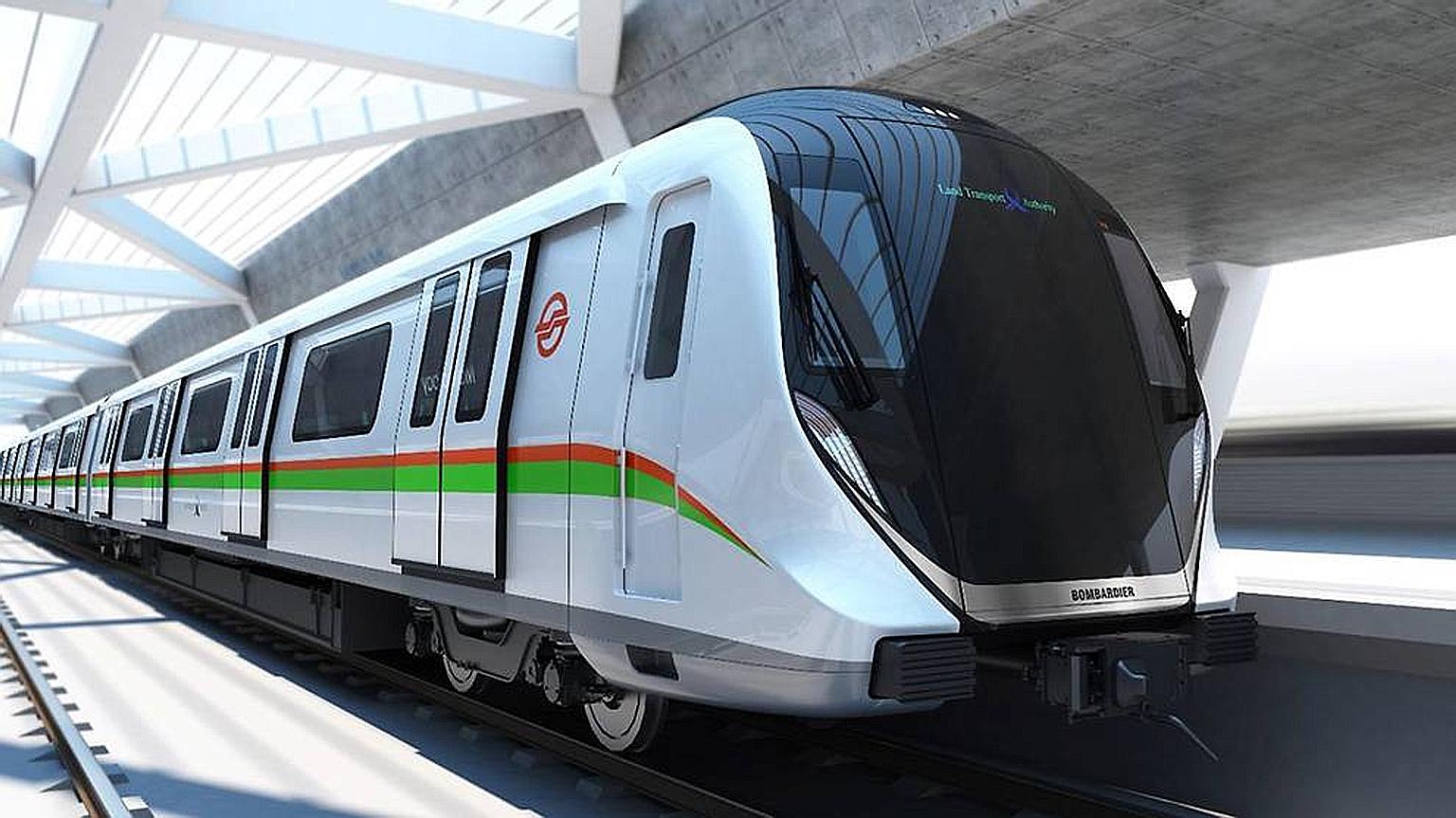North-South and East-West lines to get 66 new trains
Contract worth $1.2b set to improve reliability on Singapore's most heavily used MRT lines
Sign up now: Get ST's newsletters delivered to your inbox

The new Bombardier trains will come with features designed to fix problems even before they arise, including condition-monitoring sensors.
PHOTO: LTA
Singapore's oldest and most heavily used MRT lines will get 66 new trains in a contract worth $1.2 billion, an acquisition that will improve reliability on the North-South and East-West lines.
The move is the latest in a multi-year drive to improve the two lines, which until recently had suffered the worst MRT breakdowns.
Canadian engineering giant Bombardier was awarded the contract to supply the new trains. The billion-dollar deal also includes service support, where the manufacturer will provide spare parts and technical expertise for the 30-year lifespan of the trains.
The trains, which cost around $827 million, will replace 66 first-generation trains which have been in service from the time the MRT started more than 30 years ago.
Bombardier will manufacture the trains in Changchun, China, and will start delivering them to Singapore from 2021. All 66 trains will be here by 2024.
Speaking at the tender award ceremony at Tuas Depot yesterday, Transport Minister Khaw Boon Wan said the Bombardier trains will come with features designed to fix problems even before they arise. These include condition-monitoring sensors and back-end analytic systems which will allow engineers to detect and address anomalies early.
Mr Khaw, who is also the Coordinating Minister for Infrastructure, said this will reduce significantly the chances of train faults arising.
Four of the 66 new trains will also be fitted with an automatic track inspection system, which uses cameras, lasers and sensors to help detect rail defects.
Mr Khaw said: "The MRT system has many core components, but to commuters, trains are the most tangible aspect of their daily experience." The new trains will cater to parents with strollers, wheelchair users and commuters with personal mobility devices or foldable bicycles, while having the same number of seats.
This is possible with the trains' tip-up seats, which can be folded up to free up more room. Mr Khaw said: "We are halfway through the asset renewal programme for the North-South and East-West lines."
In the past six years, the two lines have had their rail sleepers, power-supplying third rail and signalling system replaced. More trains have also been injected into the network.
The improved service has not gone unnoticed. Commuter Arthur Elfin Chiang said the two lines had long been the most problematic, but "they are now more reliable".
"If you want to encourage people not to drive, then you have to have a reliable public transport system," said the 39-year-old head of development and operations at Rainbow Centre, a special needs school.
Later this year, renewal work on the North-South and East-West lines' power system and track circuits will begin. "These works will again require more periods of early closure, late opening," Mr Khaw said, referring to shorter operating hours on Fridays and weekends implemented since early this year.
When the 66 new trains arrive, the North-South and East-West lines will have three brands of trains - Bombardier, Siemens and Kawasaki. Bombardier beat four others to clinch the latest deal.
Commuter Ethan Guo said he is happy that Bombardier won, as he likes the design and build of the Downtown Line trains, which are also supplied by Bombardier.
"Hopefully, our transport system will be world-class and something all Singaporeans can be proud of once again," added Mr Guo, a 30-something who works for a non-governmental organisation.


